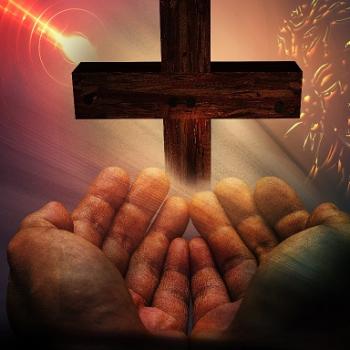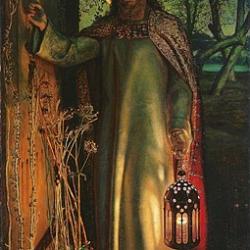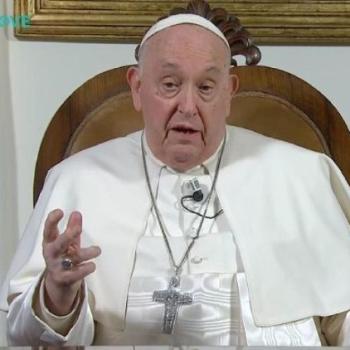Now Featured in the Patheos Book Club
Between the Dark and the Daylight:
Embracing the Contradictions of Life
By Sister Joan Chittister
Q: What is your hope or goal for this book?
Joan Chittister (JC): I am hoping to generate good conversations about the unseen elements of life that often affect our decisions more than they should. It's a matter of helping people think through all the dimensions of life as we deal with the rest of it.
To put it another way: Life is made up of context as well as content. These things—the social environment, out attitudes, our goals, our sense of self—all affect the way we come to our decisions and why. The purpose of this book is to bring those things to consciousness so we can come to understand why we think what we think as we go through life. It's an attempt to make the invisible parts of life visible to us in ways that free us to operate at our best.
Q: What made you decide to write about this topic?
JC: I think this topic helps to take the sense of aloneness out of life. Everyone deals with each of these things like what it means to be part of the crowd, for instance. The question is when is the crowd helpful—and when not. What part of being in a crowd is more harmful than good. Discussions like that alone make the discussion of particular issues both more real and more honest.
Life is a series of paradoxes—contradictions that are as true as they are false—that confront us all our lives. The point is to look at each of them from every perspective and bend them to our strengths, not simply surrender to the pitfalls they present us with.
Q: In the introduction you write, "Whatever it is that we harbor in the soul throughout the nights of our lives is what we will live out during the hours of the day." How do we focus our souls during the nights so that we can live with purpose and stability during the days?
JC: In the first place, we have to focus on the attitudes we bring to every challenge in life. We have to ask whether or not we have examined each of them thoroughly or only with prejudice.
We have to grow beyond our fears in order to become our best and strongest selves. But to do that we need to look them in the eye, up close and personal. Then, we can concentrate on the issues we're dealing with and not be distracted by elements of life that have not real bearing on the issue itself.
Q: You talk about this premise that the spiritual life begins within the heart of a person and so "when the storms within recede, the world around us will still and stabilize as well." What a great visualization! Can you offer a few practical tips for settling our inner storms?
JC: By admitting our fears and prejudices to ourselves we make room for other ways of thinking. Then we no longer get up in the morning geared for battle.
Fear and prejudice end when we can admit each of them, examine each of them with others, and understand the value and weakness of each position. Once we do that, we will be capable of talking out other difficult things together, too.
Q: If you could choose one message from the book to really drive home to your readers, what would it be?
JC: A culture in transition is a culture of prejudices, of polarized populations, of ideas cemented in fear. It's time to examine all of them in the light so that we can all move on together, open to new ideas, full of courage and understanding of people who think other than we do.
3/1/2015 5:00:00 AM




